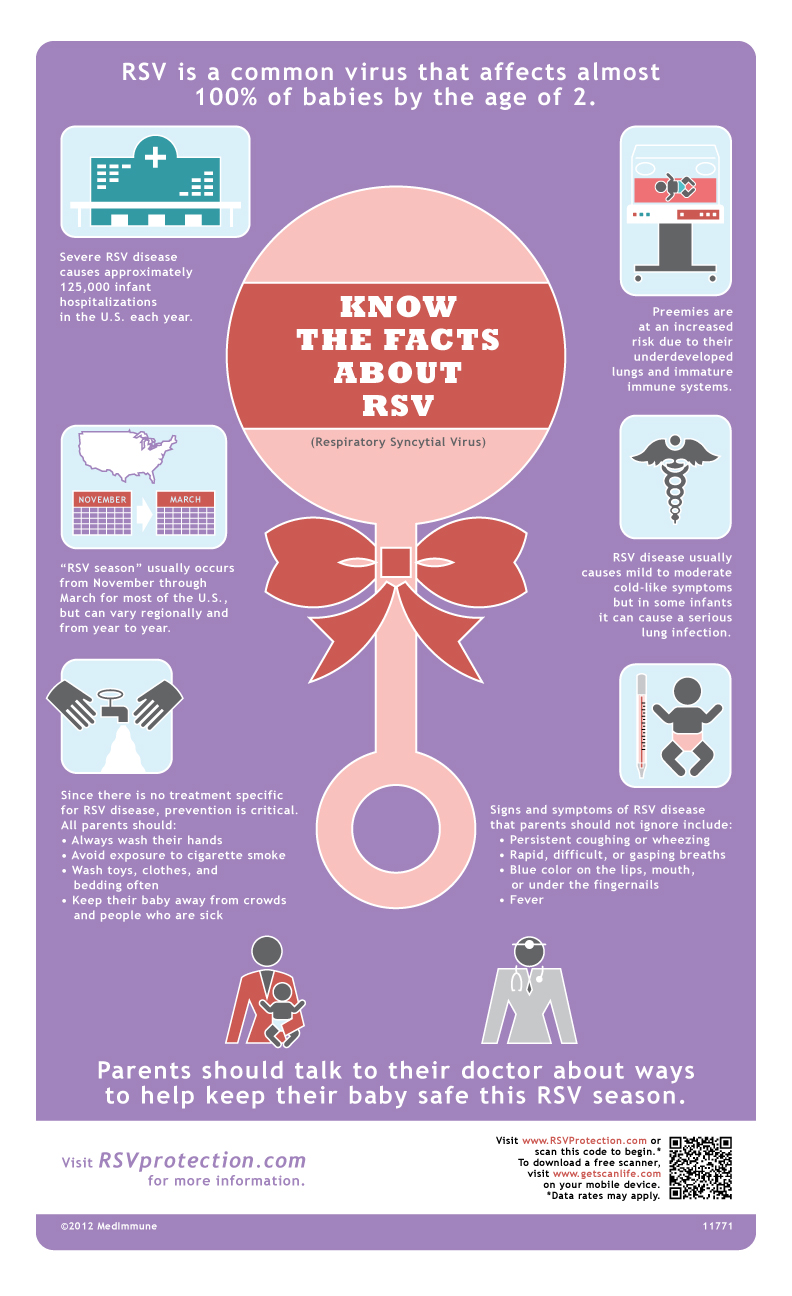If you have kids in daycare, preschool, or in school, you’ll know how easily they can catch a cold or flu that gets passed around through the classrooms. I know with my oldest starting Kindergarten this year we’ve seen how easily he can pick up something and spread it through the rest of our home. RSV (Respiratory syncytial virus) is one highly contagious seasonal virus that appears with cold-like symptoms. Because this strain is so contagious, nearly all babies will contract RSV by the age of 2. Most often RSV will just affect a child with mild to moderate cold-like symptoms and with mild symptoms it will generally run its course with no great cause for concern. However, the child is still very contagious and can potentially spread the infection to younger children or a premature infant who is most at risk for severe RSV symptoms which can be fatal.
To help keep your home, daycare and school environments germ free help your kids get in the practice of washing their hands frequently. For young kids, make sure you have a stool handy that will help them feel independent being able to reach the faucet and the sink themselves. Foaming soap is a big hit here in my house that makes washing hands fun! Use Clorox to disinfect bathrooms, doorknobs, toys, and countertops where germs most frequently live. Finally, if your child is showing symptoms of being sick, it’s best to keep them home and let them recuperate and keep the germs away from other children.

Important Facts About RSV
- RSV Season typically runs from November through March
- There is no treatment for RSV so prevention is key
- Preventative measures include washing hands, toys and bedding frequently and avoiding crowds and cigarette smoke
- Serious RSV infection is the leading cause of infant hospitalization responsible for more than 125,000 hospitalizations and up to 500 infant deaths each year
Know the Symptoms
If your child displays the following symptoms, you will want to seek immediate medical attention.
- Coughing or wheezing that does not stop
- Fast or troubled breathing
- Spread-out nostrils and/or a caved-in chest when trying to breathe
- Bluish color around the mouth or fingernails
- Fever (especially if it is over 100.4°F in infants under 3 months of age)
You can find more information and help on RSV by visiting RSVProtection.com and by following #RSVProtection on twitter.
I wrote this review while participating in a campaign for Mom Central Consulting on behalf of MedImmune and I received a promotional item to thank me for my participation.

Tammy Schiff
Monday 11th of March 2013
Thanks for sharing this information with your readers. We lost our little girl to RSV at 4 months. So it is so important that parents know the signs. It strikes hard and fast.
mrs. bacon
Wednesday 30th of January 2013
my son also got rsv. It was the scariest sounding cough I have ever encountered. He got it in daycare and it was so hard watching him go through it. Luckily, we avoided a hospital stay.
michelle warner
Tuesday 29th of January 2013
rsv is so bad my daughter caught it when she was two weeks old and it made her develop asthma and a heart murmer, she alctually caught it while in doctors office, beware of rsv, thanks for the great post